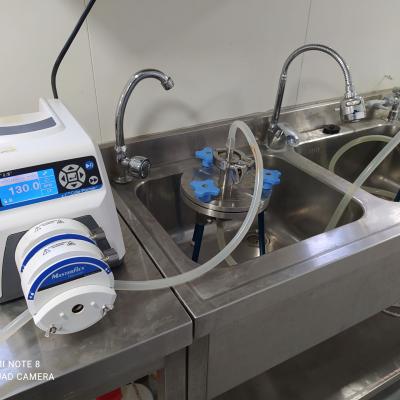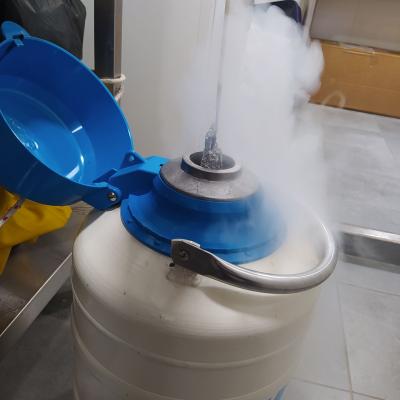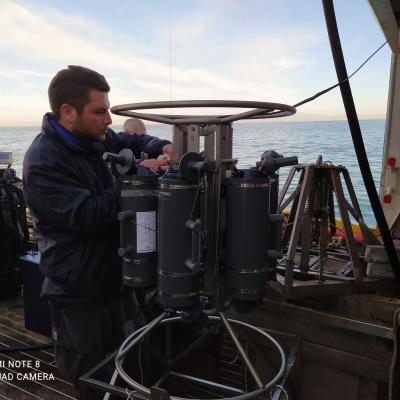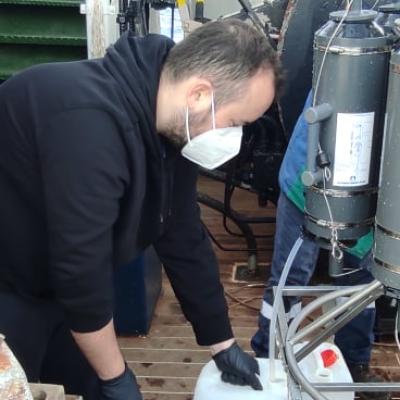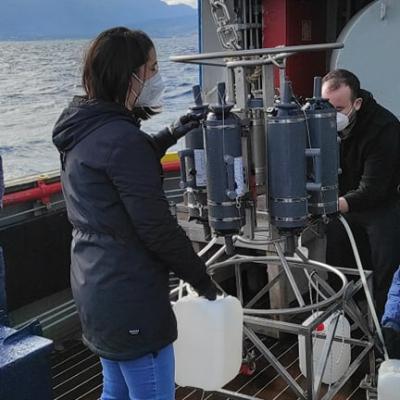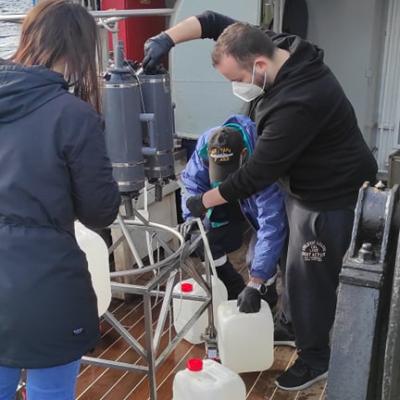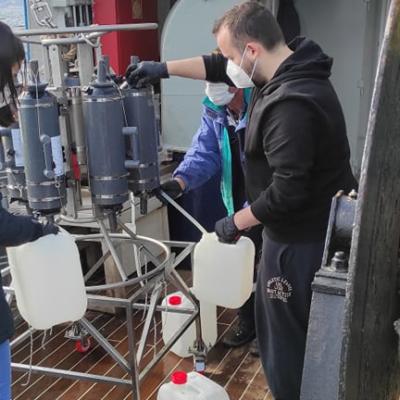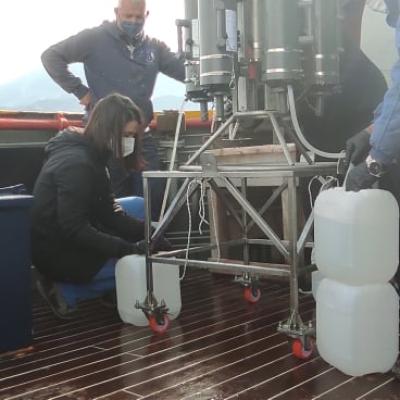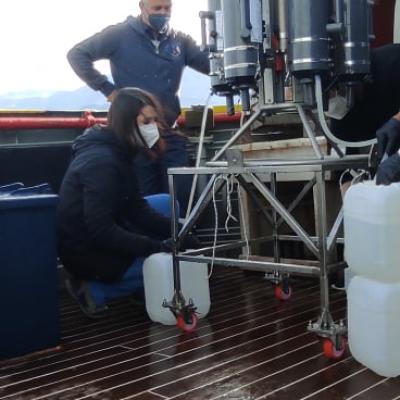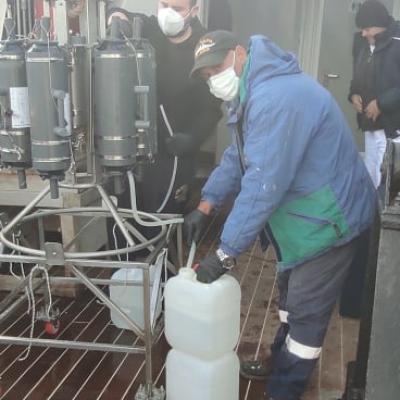Proposal 9: MARINEBIODRASTICS
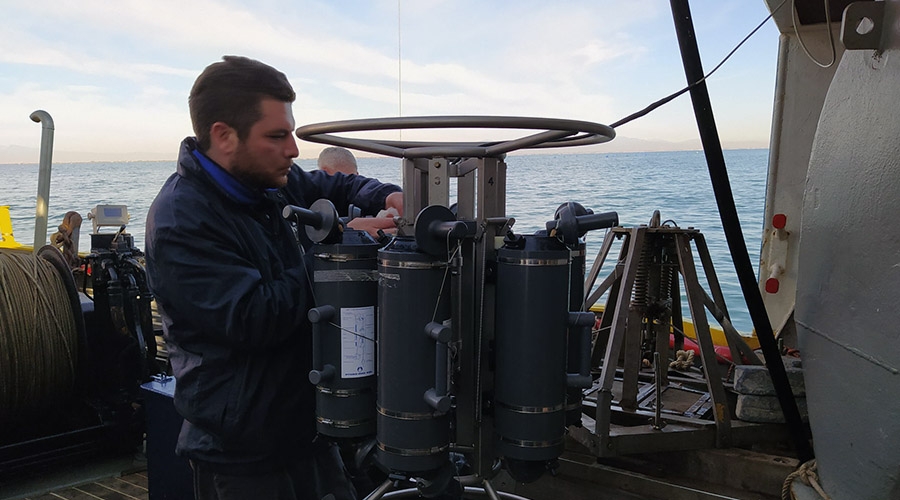
Marine Biodrastics - Detection of bioactive compounds produced by microalgae in the Greek Seas
When: Spring 2022
Where: Agios Nikolaos Gulf and Thermaikos Gulf
Who: Provil A.E. Thessaloniki/Taste & Favor
The scope of the “MARINEBIODRASTICS” project was to search for known and unknown bioactive metabolites produced by micro-plankton from various marine areas and depths. For the collection of marine samples, R/V Philia was used, in the scheme of the Work Package 6 of the “RePHIL” research project. For the analysis of the collected micro-plankton biomass, mass spectroscopy, imaging microscopy and flow cytometric techniques were used.
The scope of the “MARINEBIODRASTICS” project was to search for known and unknown bioactive metabolites produced by micro-plankton from various marine areas and depths. For the collection of marine samples, R/V Philia was used, in the scheme of the Work Package 6 of the “RePHIL” research project. For the analysis of the collected micro-plankton biomass, mass spectroscopy, imaging microscopy and flow cytometric techniques were used.
Through the above effort, it will be possible to create a "map" of the presence-absence and the spatial distribution of bioactive compounds and potential to track the ideal conditions that boost the production of rare substances. These substances can have a commercial interest for the food industry, pharmaceuticals, feed additives for productive and non-productive animals, and many others.
Sampling
Two expeditions were organized with the R/V "PHILIA" during which, with the help of the qualified staff of HCMR, water column samples were collected using Niskin bottles. The environmental data were recorded using a CTD. The expeditions took place in the Cretan Sea and Thermaikos Gulf in the period of January and April of 2022 respectively.
The first expedition was conducted in January 2022 in the Gulf of Agios Nikolaos, in Crete, Greece. Samples were collected from one station [35° 9'22.22"N, 25°47'19.62"E] and 3 depths (2m, 50m, 100m). That specific mission functioned as a pilot for testing and optimization of the various analytical techniques for the microplankton especially considering the challenges that were raised from the ultra-oligotrophic and low-biomass conditions in the southern regions of the Aegean.
Two expeditions were organized with the R/V "PHILIA" during which, with the help of the qualified staff of HCMR, water column samples were collected using Niskin bottles. The environmental data were recorded using a CTD. The expeditions took place in the Cretan Sea and Thermaikos Gulf in the period of January and April of 2022 respectively.
The first expedition was conducted in January 2022 in the Gulf of Agios Nikolaos, in Crete, Greece. Samples were collected from one station [35° 9'22.22"N, 25°47'19.62"E] and 3 depths (2m, 50m, 100m). That specific mission functioned as a pilot for testing and optimization of the various analytical techniques for the microplankton especially considering the challenges that were raised from the ultra-oligotrophic and low-biomass conditions in the southern regions of the Aegean.
In April 2022, the second expedition was conducted in the area of Thermaicos Gulf, close to Thesalloniki, in Northern Greece in which a total of 6 samples were collected at 2m and 20m depth from the three different stations [1) 40°31'38.64"N, 22°47'15.12" E 2) 40°29'26.43"N, 22°45'2.39"E 3) 40°27'18.96"N, 22°48'31.44"E] which were selected based on their location and the prevailing environmental conditions to them.
#rephilproject #hcmr #ntua #researchvessel #fisheriesvessel #researchexpedition #fisheriesresearch
#rephilproject #hcmr #ntua #researchvessel #fisheriesvessel #researchexpedition #fisheriesresearch



